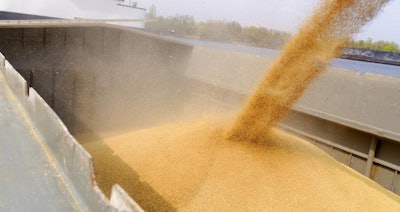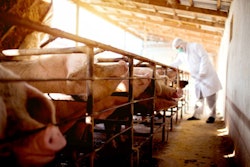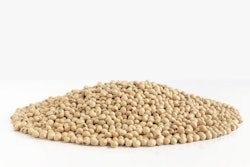
USDA partners with California port to make it easier for US shippers to move agricultural commodities
U.S. Department of Agriculture (USDA) and the Port of Oakland, California, are partnering to improve service for shippers of U.S. agricultural commodities at the port.
According to a January 31 press release from the USDA, the department and the port will set up a new 25-acre “pop-up” site to make it easier for agricultural companies to fill empty shipping containers with commodities. Fewer containers have been made available for U.S. agricultural commodities, as ocean carriers have circumvented traditional marketing channels and rushed containers back to be exported empty and as a result, many of these carriers have suspended service to the Port of Oakland, USDA said.
“COVID-19 revealed vulnerabilities across our supply system, both at our ports and in the agricultural sector. As the economy has made an historic recovery, it has put additional strain on the supply chain,” U.S. Agriculture Secretary Vilsack said. “This partnership with the Port of Oakland builds on our aggressive approach to addressing challenges within the supply chain and sends a strong signal that we are committed to working across the administration and with state, local and private partners to mitigate complex port capacity and congestion issues and to keep American agriculture on the move.”
In March 2021, a group of more than 70 U.S. agriculture groups sent a letter to President Joe Biden and copied to U.S. Agriculture Secretary Tom Vilsack, U.S. Transportation Secretary Pete Buttigieg, Council of Economic Advisors Chair Cecilia Rouse and Federal Maritime Commission Chair Michael Khouri asking for any tools “available to our government be immediately applied to stem the current ocean carrier practices that are so damaging our agriculture exports.”
The letter said the ocean container carriers, which are headquartered overseas, “are enjoying their most profitable period in decades by controlling capacity and charging unprecedented freight rates, imposing draconian fees on our exporters and importers, and frequently refusing to carry U.S. agricultural exports.”
Buttigieg said the recent moves “will help American farmers and agricultural producers move their product to market while also making better use of empty containers that are causing congestion at the ports. After we helped set up inland pop-up ports at the Port of Savannah, we witnessed significant improvements in the flow of goods, and we expect to see similarly positive results once this Oakland facility is open.”
The site will provide space to prepare empty containers beginning in early March. Agricultural companies and cooperatives will have easier access to these containers, which they will fill with commodities, restoring shipping services to agricultural products while relieving congestion. The new site will also have a dedicated gate with the ability to pre-cool refrigerated shipping containers to receive perishable commodities, all while avoiding bottlenecks that would have resulted from entering the main area of the port.
In a statement, the American Farm Bureau Federation (AFBF) said it supports the partnership.
“Supply chain issues are a big concern for farmers and ranchers and we appreciate USDA’s actions to ease congestion at several ports. Today’s announcement about increasing capacity at the Port of Oakland, our third largest port for containerized waterborne agricultural products, is welcome news. It’s an important step to ensure America’s farmers and ranchers have a reliable path for exporting the rice, beef, pork, fruits, vegetables, almonds and many other agricultural goods grown in the United States,” AFBF said. “Further steps must be taken to prevent carriers from sending empty containers out of U.S. ports, such as the passage and signing of the Ocean Shipping Reform Act. Port congestion is one piece of a larger puzzle and AFBF will continue working with industry, federal agencies and Congress to untangle the complicated web of supply chain issues facing farmers and ranchers.”
In December 2021, the U.S. House of Representatives passed the bipartisan Ocean Shipping Reform Act of 2021 (H.R. 4996), which revises ocean shipping policies to address some supply chain bottlenecks at U.S. ports. The bill has moved on to the Senate, where it has been referred to the Committee on Commerce, Science and Transportation.













